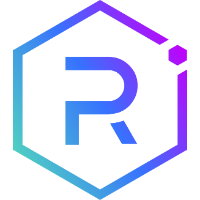What Are zk Rollups in Crypto

Have you heard about zk rollups in the world of crypto? If you're interested in understanding how this technology can revolutionize the way transactions are processed on the blockchain, you've come to the right place. In this article, we'll delve into what zk rollups are, how they work, and why they are gaining traction in the crypto community.
zk rollups, short for Zero-Knowledge Rollups, are a scalability solution for Ethereum and other blockchain networks. They allow for a large number of transactions to be batched together off-chain, verified by a smart contract, and then committed to the blockchain as a single transaction. This process helps reduce the overall load on the main blockchain, leading to faster transaction times and lower fees.
How Do zk Rollups Enhance Scalability?
zk rollups leverage zero-knowledge proofs to bundle multiple transactions into a single compact proof that can be verified on-chain. This means that only the proof needs to be verified, rather than each individual transaction, drastically increasing the throughput of the network. By moving the heavy lifting off-chain and settling the final state on the main chain, zk rollups can achieve significant scalability improvements.
Reducing Transaction Costs with zk Rollups
One of the key benefits of zk rollups is their ability to reduce transaction costs on the Ethereum network. By aggregating multiple transactions into a single rollup and submitting them as a single transaction to the blockchain, users can save on gas fees that would have been incurred if each transaction were processed individually. This cost-saving feature makes zk rollups an attractive solution for decentralized applications (dApps) and users looking to optimize their transaction fees.
The Future Impact of zk Rollups on Blockchain Technology
As zk rollups continue to gain adoption within the crypto community, their impact on blockchain technology is becoming increasingly apparent. They offer a practical solution to the scalability issues that have plagued Ethereum and other blockchain networks, paving the way for a more efficient and cost-effective transaction processing system. With the potential to revolutionize the way transactions are executed on the blockchain, zk rollups are poised to play a significant role in the future of decentralized finance (DeFi) and other blockchain applications.
In conclusion, zk rollups represent an innovative solution to the scalability challenges facing blockchain networks. By optimizing transaction processing and reducing fees, zk rollups have the potential to enhance the efficiency and usability of decentralized applications. As the crypto industry continues to evolve, zk rollups are likely to play a central role in shaping the future of blockchain technology.
Related articles
Latest articles
See more






![Stratis [New] to usd](https://img.bgstatic.com/multiLang/coinPriceLogo/9a7d28f236a930ed5ccfa997352e6b521711645984131.png)













